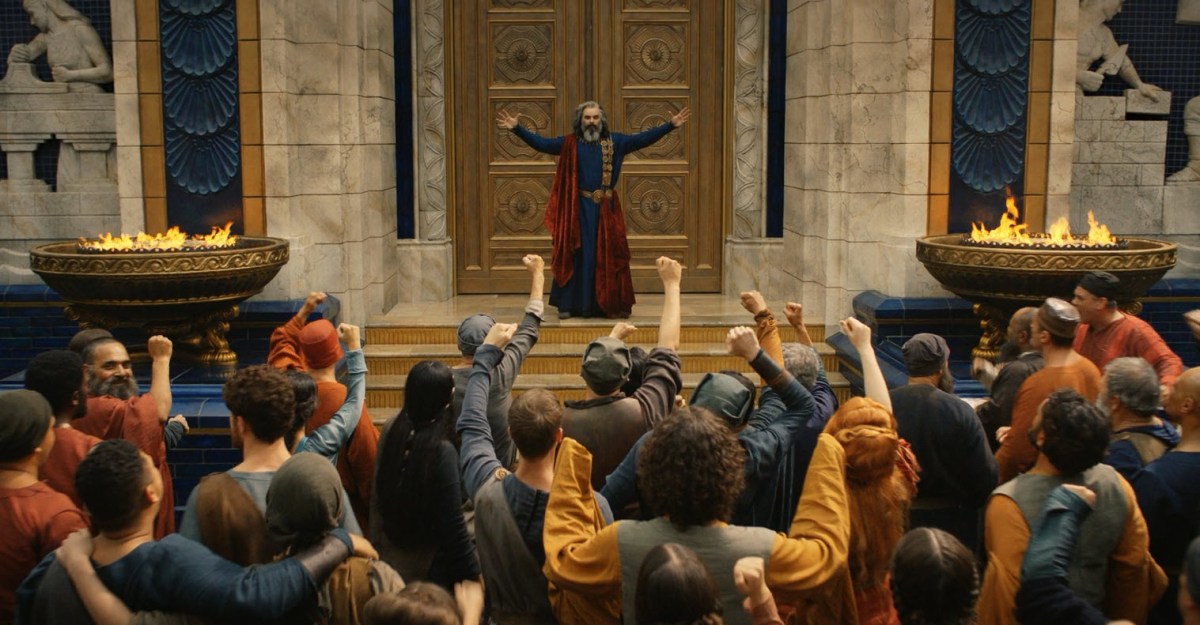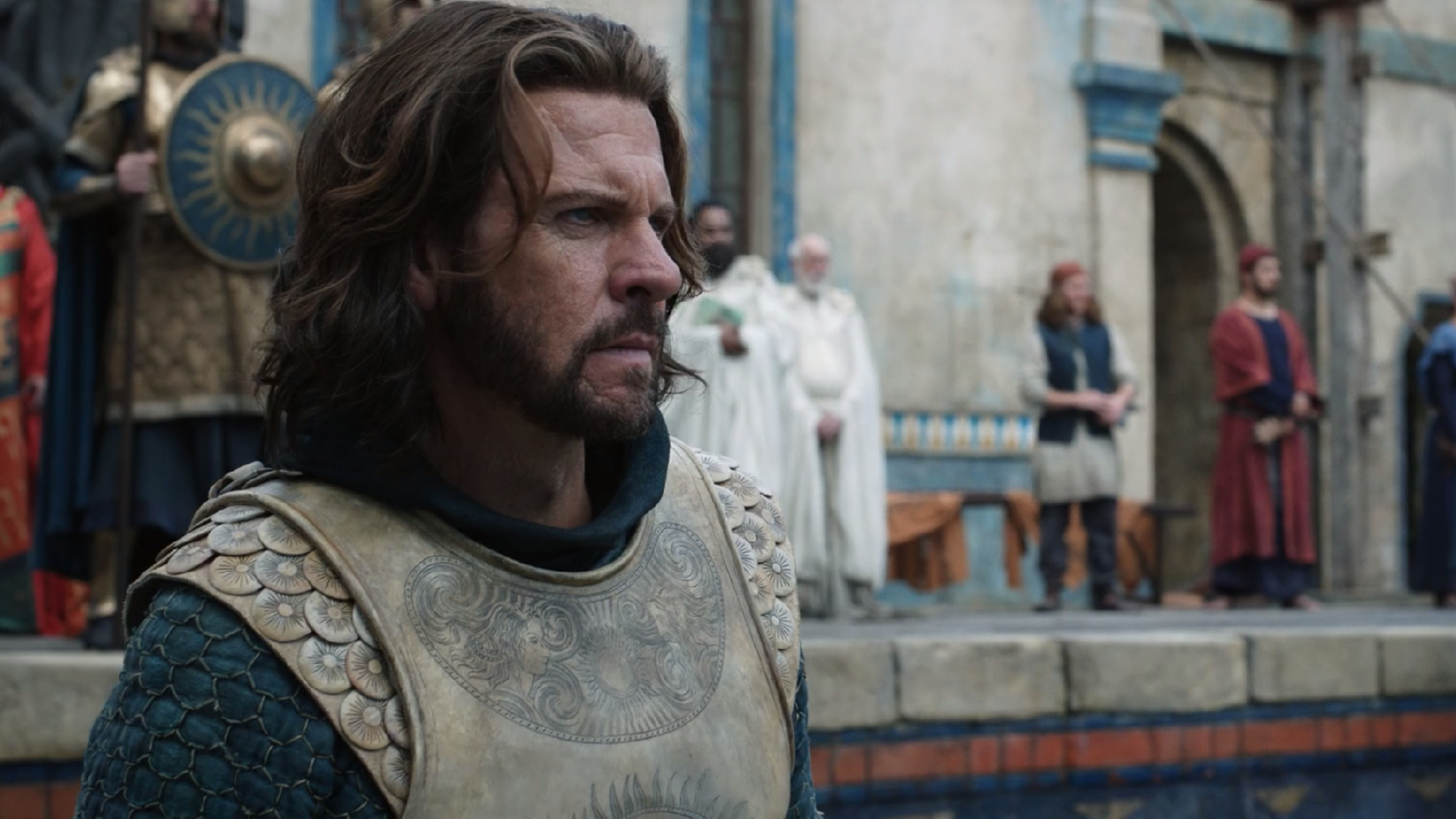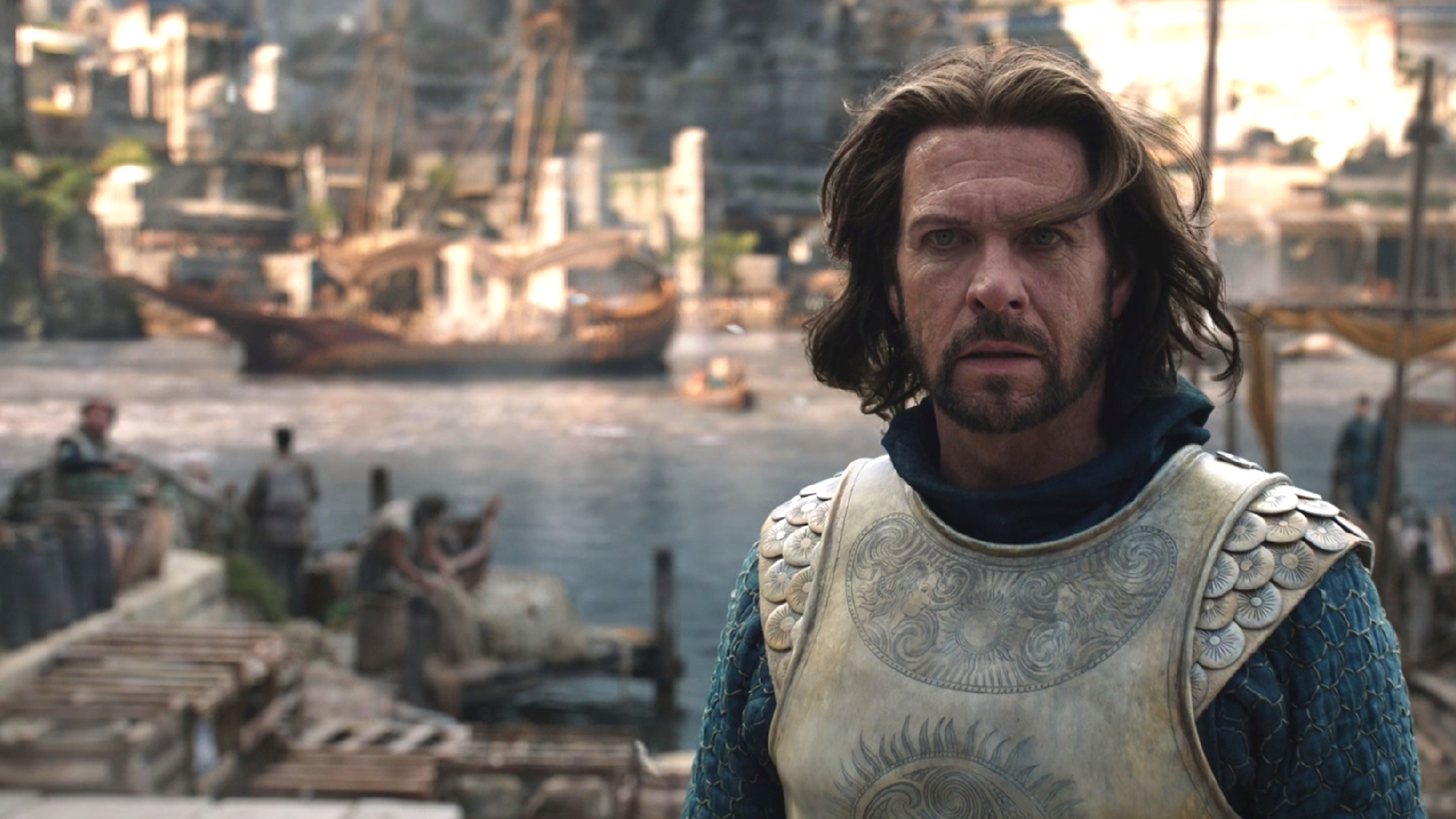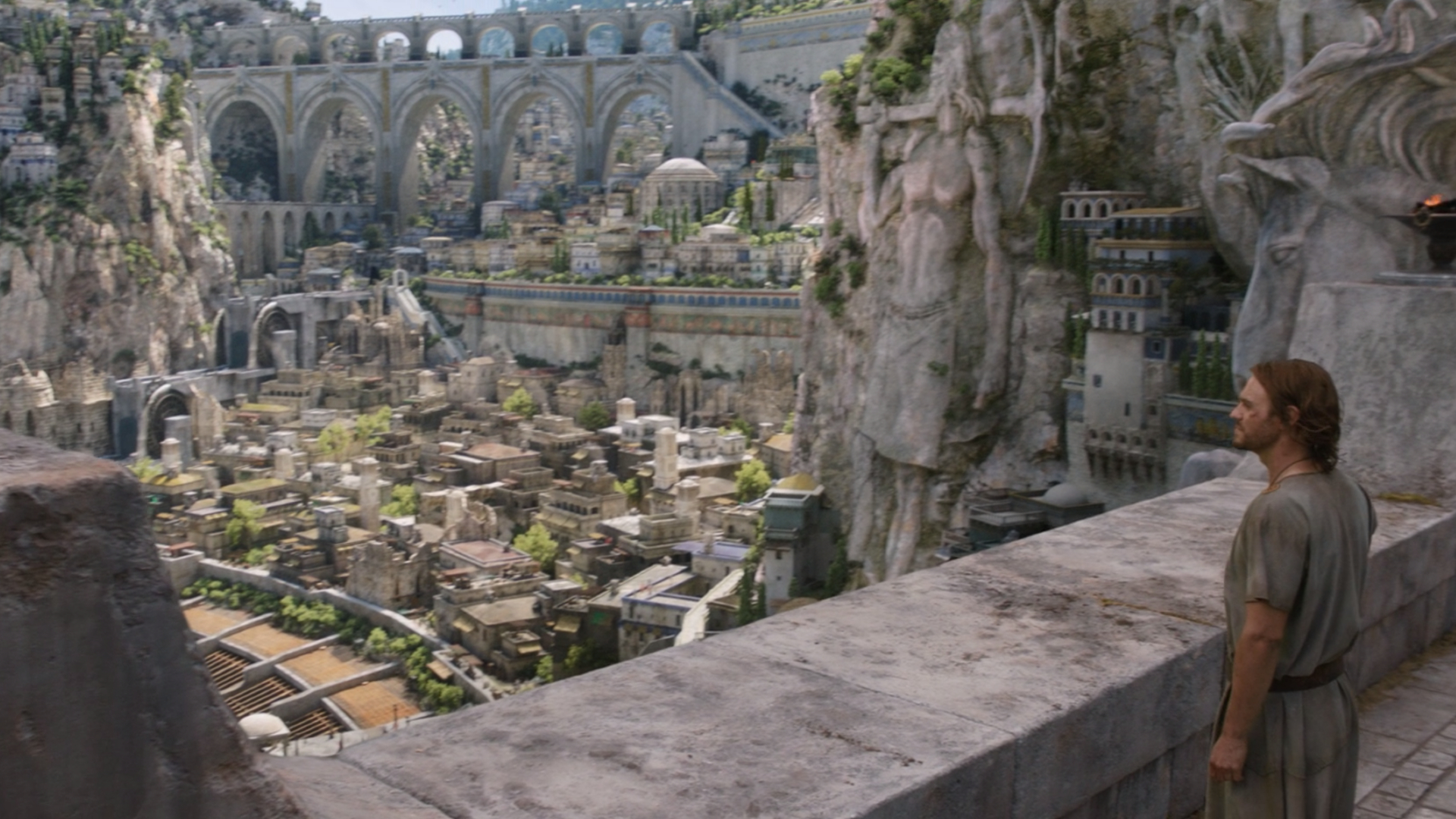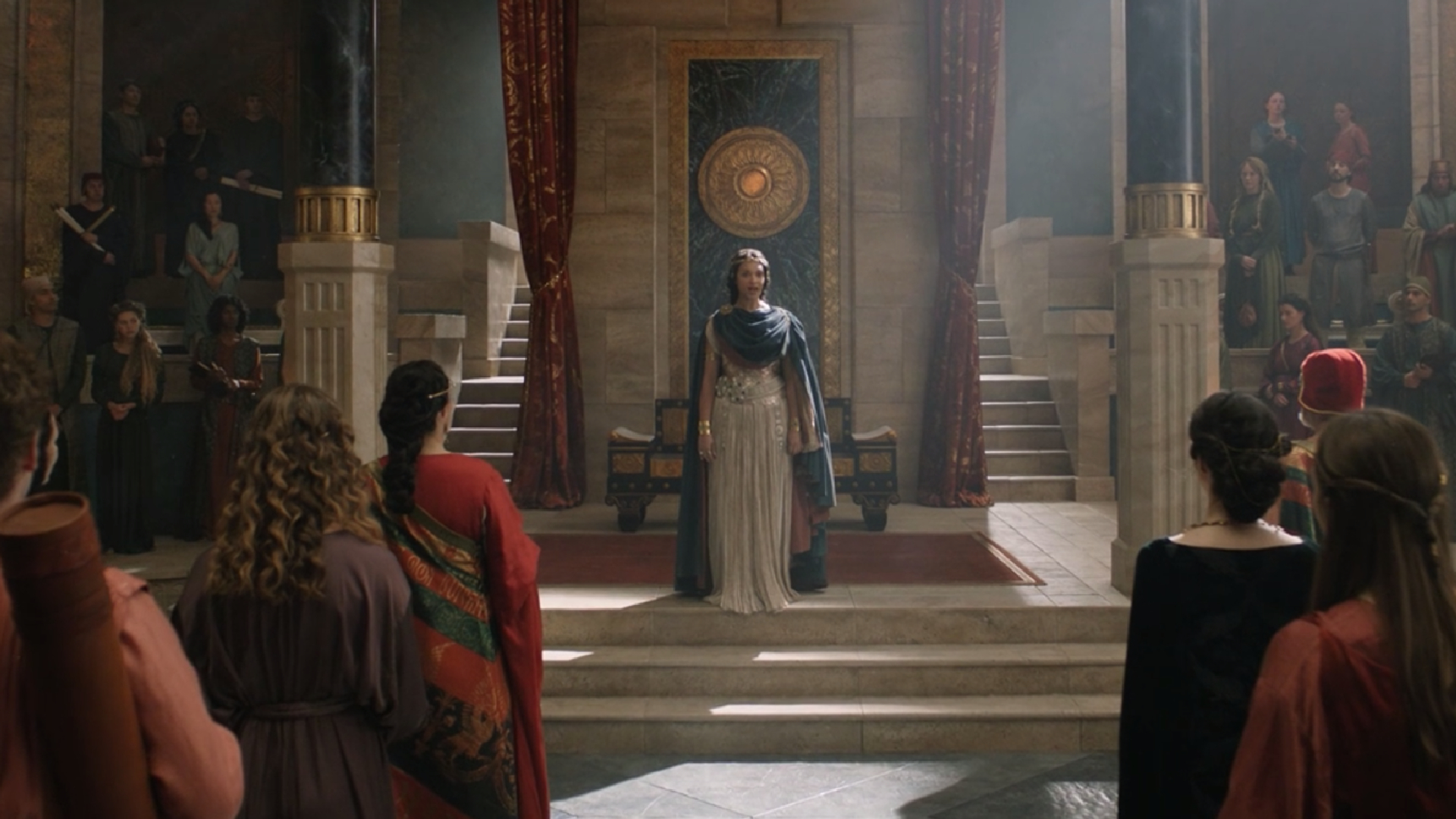There aren’t many parallels to reality in a fantasy series.
While plenty of distinctly fictional series take aim at real-world issues and attempt to mirror them through lore-friendly additions, most fantasy is tackling social and political issues of a very different sort to what viewers are used to. That’s not stopping plenty of critical viewers from hurling accusations at Amazon Prime’s The Lord of the Rings: The Rings of Power, making claims of “wokeness” and political messaging tossed into its dialogue. These claims are tenuous at best, as noted by one Redditor, and seem to be yet another attempt by the show’s passionate detractors to paint it in a negative light.
User Late_Stage_PhD took to the official Rings of Power subreddit to explain how a rallying speech in one of the show’s recent episodes was very much not an attempt to bleed real-world politics into Middle-earth. They provide three reasons why those people who are heaping real political messaging into a speech disparaging elves “are the ones that actively bring modern politics into the show,” noting that these people are seizing “on a very weak parallel [to] force a nonsense interpretation on the show.” Critical viewers are linking a speech from the fourth episode to the ageless “they took our jobs” sentiment, and Late_Stage_PhD is having none of it.
The redditor’s three reasons are thoroughly laid out, as Late_Stage_PhD takes care to explain why the original speech, followed by Ar-Pharazôn’s address, are grounded in the politics of Middle-earth, rather than the politics of America. The first point notes that “its a very weak parallel,” before diving into a thorough breakdown of Ar-Pharazôn’s words and those that prompted them. The speech he responds to relates directly to the elves, and their presence as “workers who don’t sleep, don’t tire, don’t age.” We’re far from discovering any paths to immortality in 2022, so any parallels between the Númenóreans’ complaints and those levied by, say, angry right-wingers are tenuous at best.
The second point clarifies Late_Stage_PhD’s stance even more, as they point out that xenophobia and nationalism were not born in the 21st century. These unfortunate mindsets have been around since society was formed, and “just because there [is] xenophobia in modern times doesn’t mean it’s exclusively modern.” The ability to see one’s own experiences mirrored in a show’s story doesn’t make those plot lines modern, it simply showcases mankind’s tendency to repeat our mistakes.
The third and most important point posed by Late_Stage_PhD stresses the importance of understanding Ar-Pharazôn’s address in the greater context of the Rings of Power story. It is clearly a purposefully approached scene, and the political messaging some viewers are fixating on is very much not the point. Instead, Late_Stage_PhD urges them to see beyond the surface-level dialogue, to the real purpose behind the original speech and, more importantly, Ar-Pharazôn’s careful manipulation.
One clear purpose behind the scene, according to Late_Stage_PhD, is to showcase Ar-Pharazôn’s ability to maneuver a crowd. His skill in speech craft is carefully laid out in this introductory scene, and is clearly laying the groundwork for future plot points. His clear familiarity with the original speaker is also hinted toward, and indicates that the original speech, and Ar-Pharazôn’s response to it, were carefully set up to make Ar-Pharazôn look good.
Longtime Lord of the Rings fans can see the brewing story beneath Ar-Pharazôn’s honeyed words, but viewers without an eye on the future may remain confused as to the true purpose of this speech. Late_Stage_PhD has a message for them as well, noting that the show is a bare few episodes into its story. We’re still a long way off from the climax of both Númenór and Middle-earth as a whole, so it’s probably best to save any harsh takeaways for a bit later in the story.

